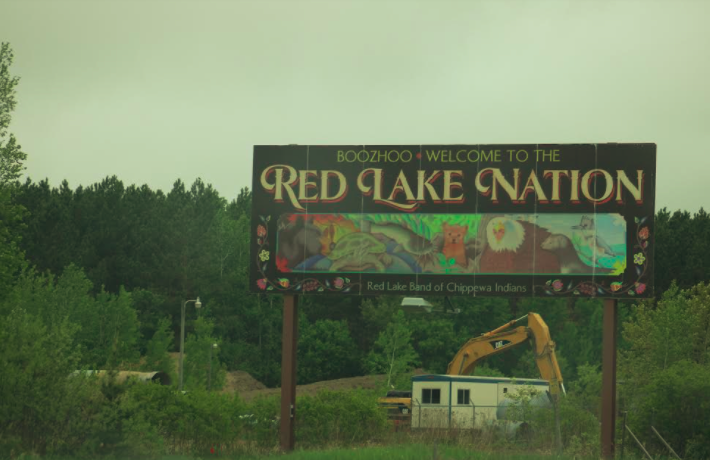
- Details
- By Darren Thompson
RED LAKE INDIAN RESERVATION — A Red Lake Nation Police Officer was shot and killed on Tuesday while on duty. The officer has been identified as Ryan Bialke, a non-tribal member. The incident occurred east of Redby, Minn. on the Red Lake Indian Reservation.
“It is with heavy hearts to announce that the Red Lake Nation lost a police officer this morning,” said the Red Lake Tribal Council in a statement. “Chairman Seki is directing all Tribal Programs and Businesses to lower flags to half-staff throughout this week. Sincere condolences to family and friends. Prayers and strength to the Red Lake Nation during this difficult time.”
Want more Native News? Get the free daily newsletter today.
The Red Lake Tribal Police Department did not provide a comment as of press time in regards to the incident, but is expected to make a statement soon. One person is in custody in connection with the incident.
In 2005, a shooting spree occurred on the Red Lake Indian Reservation killing ten people in various locations including the Red Lake High School.
“I know I’m going to miss the happiness you brought to me each time we would visit,” said Dana Lyons of Ryan Bialke in a Facebook post. “One of the best men I knew in my life, a good father and a person with a really big heart.”
This is a developing story.
More Stories Like This
Native News Weekly (August 25, 2024): D.C. BriefsUS Presidents in Their Own Words Concerning American Indians
Native News Weekly (December 14, 2025): D.C. Briefs
Wounded Knee Massacre Site Protection Bill Passes Congress
Two Murdered on Colville Indian Reservation
Help us defend tribal sovereignty.
At Native News Online, our mission is rooted in telling the stories that strengthen sovereignty and uplift Indigenous voices — not just at year’s end, but every single day.
Because of your generosity last year, we were able to keep our reporters on the ground in tribal communities, at national gatherings and in the halls of Congress — covering the issues that matter most to Indian Country: sovereignty, culture, education, health and economic opportunity.
That support sustained us through a tough year in 2025. Now, as we look to the year ahead, we need your help right now to ensure warrior journalism remains strong — reporting that defends tribal sovereignty, amplifies Native truth, and holds power accountable.
 The stakes couldn't be higher. Your support keeps Native voices heard, Native stories told and Native sovereignty defended.
The stakes couldn't be higher. Your support keeps Native voices heard, Native stories told and Native sovereignty defended.
Stand with Warrior Journalism today.
Levi Rickert (Potawatomi), Editor & Publisher
